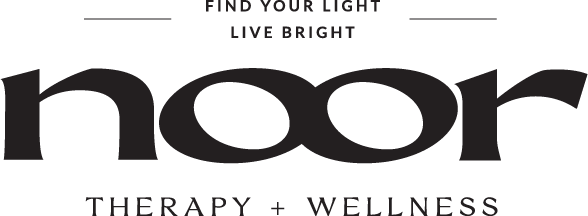The Echoes We Carry: Healing Ancestral Wounds
As a child of immigrants, you exist between worlds. You may speak two (or more) languages, code-switch without thinking, and carry within you stories that were never told in full, only hinted at in your parents’ silence, in your grandparents’ eyes, and in the customs that shaped your early life.
You may have grown up hearing fragments of what came before you: how your family fled war, survived genocide, how they rebuilt life in a new land with unfamiliar rules, and how they survived unthinkable loss. These stories, whether spoken aloud or inherited through behavior, carry the weight of what has come before. That history lives in you, not as a distant memory, but as a force that shaped your emotions, reactions, and inner world.
Even if your own life has been relatively stable, you may find yourself struggling with persistent anxiety, shame, or a deep sense of pressure to succeed. These experiences don’t always make sense when you look only at the present. But when viewed through the lens of ancestral trauma, they begin to form a clearer picture.
Understanding Ancestral Trauma
Ancestral trauma, sometimes called intergenerational trauma, refers to the emotional, psychological, and even physical effects of trauma passed down from one generation to the next. For those in the diaspora - especially children of refugees, genocide survivors, or those who fled systemic violence - this trauma can take root in subtle yet powerful ways. It becomes part of your internal narrative before you even have words for it. You might feel like you’re constantly bracing for something bad to happen. You might carry a heaviness that’s hard to explain, a sadness that doesn’t seem tied to your own life. You might feel guilty for the stability or opportunities you’ve been given. Or you may feel like you need to earn your existence through relentless achievement.
The Pain Beneath the Surface
Many children of immigrants grow up with a heightened sense of vigilance. Even in peaceful, safe environments, there’s an underlying sense that the world isn’t truly safe. This isn’t just anxiety or paranoia; it’s an emotional blueprint shaped by ancestors who had to stay alert to survive. That hyper-awareness and readiness for disaster gets passed down even when the danger has passed.
Others carry grief that’s difficult to name. It could be grief for lost homelands, lost languages, or lost ways of being. Sometimes it’s grief for people you never met: relatives who were lost, cultures erased, and traditions that are forgotten. Because this grief goes unspoken and unacknowledged, it can weigh even heavier. Depression, emotional numbness, or chronic sadness may stem from this inherited loss.
You may also experience survivor’s guilt, or the sense that your success, freedom, or comfort is undeserved because of what your family endured. This guilt can create a mental block, making joy feel selfish or unsafe. It can lead to self-sabotage or burnout, especially when coupled with the unrelenting drive to “make something” of your life in honor of those who didn’t get the chance. This can even present itself as a feeling of obligation to have children to continue the family line.
The Drive to Prove Yourself
For some children of immigrants and those in diaspora, success may feel like an obligation. The pressure to succeed academically, professionally, or socially can be crushing when it’s fueled by the belief that you must justify the sacrifices of the generations before you. This drive is often rooted in love and respect, but it can easily turn into perfectionism and self-erasure.
The Question of Belonging
Navigating identity can also become a challenge. If your family endured cultural erasure, religious persecution, or forced migration, you may have inherited a fractured sense of self. You might not feel fully “enough” for either your culture of heritage or the dominant culture you live in today. You may find yourself constantly negotiating your identity or code-switching at work, school, and home, never quite sure where you truly belong.
Healing Begins With Naming
Naming ancestral trauma can reveal the hidden roots of the pain you’ve been experiencing. It gives shape to what might feel like confusion or inadequacy. This is not about placing blame on your family or living in the past; it’s about understanding the forces that shaped you so you can reclaim agency over your own story. Acknowledging ancestral wounds can help shed light on your struggles and guide your healing. Once you realize that the pressure, fear, or grief you carry may not be entirely your own, you begin to create space for compassion and change. Healing ancestral trauma takes time and care, but every step toward healing is also an act of resistance and self-love.
Carrying ancestral trauma is to carry love, memory, and survival. But this can also mean carrying burdens that you were not meant to carry alone. You are not broken for feeling heavy. You are not weak for needing rest. You are not selfish for choosing to heal. Your story has been shaped by survival, but it can also be shaped by self-compassion, joy, and new traditions of healing. You are the living future of your ancestors’ resilience.
Written by: Jean Donabedian, AMFT, APCC
Jean (he/they) is a queer, 2nd generation Armenian immigrant Registered Associate Marriage and Family Therapist as well as a Registered Associate Professional Clinical Counseling at Noor Therapy and Wellness who helps BIPOC and LGBTQ+ flox find balance between culture and identity.



